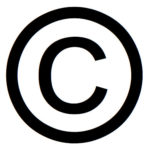Articles Category
The Missing Regulatory State: Monitoring Businesses in an Age of Surveillance
Oct. 11, 2019—Rory Van Loo | 72 Vand. L. Rev. 1563 (2019) | An irony of the information age is that the companies responsible for the most extensive surveillance of individuals in history—large platforms such as Amazon, Facebook, and Google—have themselves remained unusually shielded from being monitored by government regulators. But the legal literature on state information...
The Arbitration-Litigation Paradox
May. 31, 2019—Pamela K. Bookman | 72 Vand. L. Rev. 1119 (2019) | The-Arbitration-Litigation-Paradox The Supreme Court’s interpretation of the Federal Arbitration Act is universally touted as favoring arbitration. Its arbitration cases and decisions in other areas are also viewed as supporting the Court’s more general hostility to litigation. These pro-arbitration and anti-litigation policies can be mutually...
Reconceptualizing the Role of Intellectual Property Rights in Shaping Industry Structure
May. 31, 2019—Peter Lee | 72 Vand. L. Rev. 1197 (2019) | Reconceptualizing-the-Role-of-Intellectual-Property-Rights-in-Shaping-Industry-Structure Technological and creative industries are critical to economic and social welfare, and the forces that shape such industries are important subjects of legal and policy examination. These industries depend on patents and copyrights, and scholars have long debated whether exclusive rights promote industry consolidation...
Public Relations Litigation
May. 31, 2019—Kishanthi Parella | 72 Vand. L. Rev. 1285 (2019) | Public-Relations-Litigation Conventional wisdom holds that lawsuits harm a corporation’s reputation. So why do corporations and other businesses litigate even when they will likely lose in the court of law and the court of public opinion? One explanation is settlement: some parties file lawsuits not to...
Law and Neighborhood Names
Apr. 30, 2019—Nestor M. Davidson & David Fagundes | 72 Vand. L. Rev. 757 (2019) | Law-and-Neighborhood-Names This Article provides a novel investigation of how law both enables and constrains the ability of city residents to claim, name, and often rename their neighborhoods. A rich interdisciplinary dialogue in fields such as geography and sociology has emerged on...
Presidential Factfinding
Apr. 30, 2019—Shalev Roisman | 72 Vand. L. Rev. 825 (2019) | Presidential-Factfinding The modern President possesses enormous power. She can use military force abroad without congressional authorization, impose economic sanctions on foreign powers, or enter into trade agreements with foreign states. She can do all this on her own, with little constraint. Or so it seems....
Incapacitating Criminal Corporations
Apr. 30, 2019—W. Robert Thomas | 72 Vand. L. Rev. 905 (2019) | Incapacitating-Criminal-Corporations If there is any consensus in the fractious debates over corporate punishment, it is this: a corporation cannot be imprisoned, incarcerated, jailed, or otherwise locked up. Whatever fiction the criminal law entertains about corporate personhood, having a physical “body to kick”—and, by extension,...
Irrational Ignorance at the Patent Office
Apr. 30, 2019—Michael D. Frakes & Melissa F. Wasserman | 72 Vand. L. Rev. 975 (2019) | Irrational-Ignorance-at-the-Patent-Office There is widespread belief that the Patent Office issues too many “bad” patents that impose significant harms on society. At first glance, the solution to the patent quality crisis seems straightforward: give patent examiners more time to review applications...
Online Appendix to Irrational Ignorance at the Patent Office
Apr. 27, 2019—Online-Appendix-to-Irrational-Ignorance-at-the-Patent-Office AUTHORS: Michael D. Frakes & Melissa F. Wasserman
Private Enforcement in Administrative Courts
Mar. 30, 2019—Private-Enforcement-in-Administrative-Courts Scholars debating the relative merits of public and private enforcement have long trained their attention on the federal courts. For some, laws giving private litigants rights to vindicate important policies generate unaccountable “private attorneys general” who interfere with public enforcement goals. For others, private lawsuits save cash-strapped government lawyers money, time, and resources by...
Licensing Knowledge
Mar. 30, 2019—Licensing-Knowledge When professionals give advice, they disseminate professional knowledge to their clients. Professional advice is valuable to clients because they gain access to a body of knowledge they do not otherwise possess. To preserve the accuracy, and hence the value, of this knowledge transfer, the First Amendment should protect professional speech against state interference that...
The Exclusionary Rule in the Age of Blue Data
Mar. 30, 2019—The-Exclusionary-Rule-in-the-Age-of-Blue-Data In Herring v. United States, Chief Justice John Roberts reframed the Supreme Court’s understanding of the exclusionary rule: “As laid out in our cases, the exclusionary rule serves to deter deliberate, reckless, or grossly negligent conduct, or in some circumstances recurring or systemic negligence.” The open question remains: How can defendants demonstrate sufficient recurring...
Repealing Patents
Mar. 30, 2019—Repealing-Patents The first known patent case in the United States courts did not enforce a patent. Instead, it sought to repeal one. The practice of cancelling granted patent rights has appeared in various forms over the past two-and–a-quarter centuries, from the earliest U.S. patent law in 1790 to the new regime of inter partes review...
Regulating Offshore Finance
Jan. 28, 2019—Regulating-Offshore-Finance From the Panama Papers to the Paradise Papers, massive document leaks in recent years have exposed trillions of dollars hidden in small offshore jurisdictions. Attracting foreign capital with low tax rates and environments of secrecy, a growing number of offshore jurisdictions have emerged as major financial havens hosting thousands of hedge funds, trusts, banks,...
Wealth-Based Penal Disenfranchisement
Jan. 28, 2019—Wealth-Based-Penal-Disenfranchisement This Article offers the first comprehensive examination of the way in which the inability to pay economic sanctions—fines, fees, surcharges, and restitution—may prevent people of limited means from voting. The Supreme Court has upheld the constitutionality of penal disenfranchisement upon conviction, and all but two states revoke the right to vote for at least...
Boilerplate and the Impact of Disclosure in Securities Dealmaking
Jan. 28, 2019—Boilerplate-and-the-Impact-of-Disclosure-in-Securities-Dealmaking Capital markets dealmaking, like many kinds of business transactions, is built on a foundation of copied and recycled language—what many call boilerplate. Regulators and the bar periodically call for less reliance on boilerplate, but despite these pressures, boilerplate remains a fixture of ever-growing securities disclosures. This Article explores why boilerplate persists and how it...















